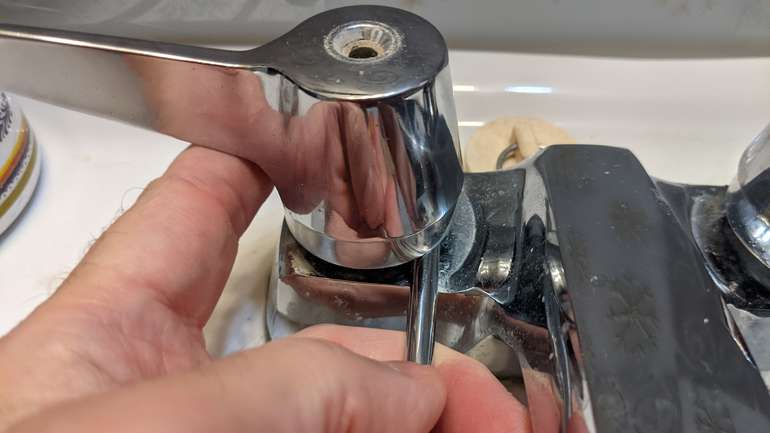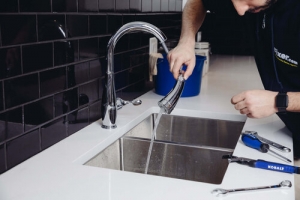Discovering the Value of Dealing with a Malfunctioning Faucet
Discovering the Value of Dealing with a Malfunctioning Faucet
Blog Article
Presented here below you will find more good resources concerning 4 Common Reasons for a Leaky Faucet.

Trickling taps might seem like a minor trouble, yet their effect exceeds simply the aggravation of the sound. From wasting water to incurring unnecessary financial expenses and health and wellness dangers, neglecting a dripping faucet can bring about numerous effects. In this article, we'll explore why it's vital to address this typical house problem quickly and successfully.
Waste of Water
Environmental Impact
Dripping faucets contribute considerably to water wastage. According to the Environmental Protection Agency (EPA), a solitary faucet dripping at one drip per secondly can throw away greater than 3,000 gallons of water each year. This not only pressures water resources but additionally influences ecological communities and wildlife based on them.
Financial Expenses
Boosted Water Costs
Beyond the environmental influence, leaking taps can pump up water costs significantly. The collected wastefulness over time translates right into greater utility costs, which might have been prevented with timely repairs.
Prospective Building Damage
In addition, long term trickling can cause damage to fixtures and surface areas bordering the tap. Water accumulation can cause staining, corrosion, and also architectural problems if left ignored, resulting in extra repair costs.
Health Concerns
Mold and Mildew Growth
The continuous visibility of wetness from a trickling tap develops an optimal environment for mold and mildew and mold growth. These fungis not just jeopardize interior air top quality however also pose health risks, specifically for people with respiratory problems or allergic reactions.
Waterborne Illness
Stationary water in dripping taps can end up being a breeding place for germs and other pathogens, increasing the risk of waterborne conditions. Pollutants such as Legionella germs flourish in stagnant water, possibly causing severe diseases when ingested or breathed in.
Do it yourself vs. Expert Repair
Advantages and disadvantages of DIY Repair
While some might attempt to fix a leaking faucet themselves, do it yourself repair work come with their very own set of challenges. Without correct understanding and devices, DIY attempts can worsen the problem or cause incomplete fixings, extending the problem.
Advantages of Working With an Expert Plumber
Hiring a specialist plumber guarantees that the underlying source of the leaking tap is addressed effectively. Plumbing professionals possess the expertise and devices to diagnose and repair tap issues successfully, saving time and lessening the risk of additional damage.
Step-by-Step Overview to Fixing a Dripping Faucet
Devices Needed
Prior to attempting to take care of a trickling faucet, gather the needed devices, including an adjustable wrench, screwdrivers, replacement components (such as washers or cartridges), and plumber's tape.
Usual Faucet Issues and Their Solutions
Determine the kind of tap and the specific concern creating the drip. Usual issues include worn-out washers, rusty shutoff seats, or faulty O-rings. Describe maker directions or online tutorials for step-by-step support on repairs.
Preventive Measures
Normal Maintenance Tips
To avoid trickling faucets, carry out routine maintenance such as cleaning aerators, examining for leaks, and changing worn-out components immediately. Additionally, think about mounting water-saving tools or upgrading to much more reliable components.
Importance of Prompt Repairs
Attending to leaking taps as quickly as they're seen prevents further water wastage and potential damages, inevitably conserving both water and cash in the future.
Influence On Residential Property Worth
Understanding of Well-Maintained Residential Property
Keeping a property in good condition, consisting of resolving upkeep concerns like leaking faucets, enhances its perceived worth and charm among potential customers or lessees.
Impact on Resale Value
Characteristics with well-kept plumbing fixtures, consisting of taps, command higher resale values in the real estate market. Addressing trickling faucets can add to a positive impact during building evaluations and settlements.
Environmental Responsibility
Specific Payment to Preservation
Taking responsibility for taking care of leaking faucets straightens with broader efforts towards water preservation and environmental sustainability. Every person's activities jointly make a considerable influence on preserving valuable sources.
Lasting Living Practices
By focusing on prompt repair services and embracing water-saving habits, individuals add to sustainable living techniques that benefit both present and future generations.
Verdict
Attending to a dripping tap surpasses simple benefit; it's a necessary step towards saving water, decreasing economic costs, and protecting health and residential property. Whether with do it yourself repairs or specialist help, taking action to fix leaking faucets is a small yet impactful means to promote responsible stewardship of sources and contribute to a much healthier, extra sustainable future.
Most Common Reasons for a Leaky Faucet and How to Stop the Drip
Whether it’s your kitchen faucet leaking or a bathroom faucet leaking, one leaky faucet can waste anywhere from three to 30 gallons of water every single day. If the constant drip-drip-drip doesn’t get your attention, your water bill will. The good news is that, by following a few simple steps, chances are pretty good you can fix the problem yourself.
Why is it dripping?
Before you start taking things apart, let’s break down some of the most common causes of a leaky faucet.
Bad O-ring.
A cartridge is a valve that controls the flow of water into the faucet spout. On cartridge faucets there’s an O-ring—the little disc attached to the stem screw that holds the faucet handle in place. If it’s loose or worn-out, it can cause your sink handle to leak. Of course, the cartridge itself could be worn out. If that’s the case, make sure you replace it with the exact same kind.
Corroded valve seat.
The valve seat connects the faucet and the spout. If the leak seems to be coming from the spout, it might be because a buildup of water sediment has corroded the valve seat.
Worn-out washers or seals.
A leaky spout could be caused by a bad washer that rests against the valve seat. It’s just a matter of time before friction takes its toll. It could also be the wrong size washer or one that’s been installed incorrectly. Water sediments can also corrode inlet and outlet seals.
Water pressure.
If the faucet only drips now and then, or when you turn the handles a certain way, you should probably check your home’s water pressure.
Loose or broken parts.
The adjusting ring and packing nuts in the stream screw can become loose over time, causing your sink handle to leak. Try tightening or replacing the packing nut. If the leak is coming from the pipes underneath the sink, you probably have a broken pipe or fitting. If that’s the case, you should definitely call a plumber.
Know your faucet.
Faucets come in a variety of types. Each one has its own assembly—and its own possible causes of leaks. Learning about the four most common kinds of faucets will help you know how to take them apart and make any repairs.
How to stop a leaky faucet
Fixing that leaky faucet doesn’t have to take a lot of time, money, or expertise. It’s usually a simple matter of replacing a worn-out washer or gasket, a loose O ring, or another part. Chances are really good you can do this yourself if you follow these simple steps.
Shut off the water.
Before you tackle the faucet, cut off the water supply to the sink. There should be one valve for hot and one for cold. Hand-turn them clockwise with your hands till they close. If there are no valves under the sink, head to the basement and shut off the main water supply to the house. Then turn on the faucet until it empties out the water that’s still in the line and you’re ready to start. It’s a good idea to cover the sink drain with a plug or a rag so you don’t lose any small pieces and parts while you’re working.

I'm just very drawn to Why Is It Important To Fix Your Leaking Tap/Faucet? and I'm hoping you enjoyed reading the entire blog posting. Are you aware of anybody else who is excited by the topic? Do not hesitate to share it. Thanks a lot for being here. Don't forget to pay a visit to our site back soon.
Report this page